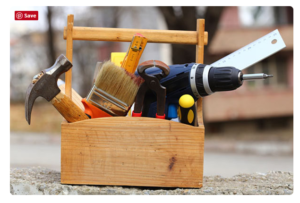
What are “do-it-yourself” repairs? These are tasks or projects that people do to fix, improve, or maintain different systems, parts, or items in their homes, cars, or other things without the help of experts.
There are many things that you can do to fix things yourself, such as. Home Repairs, Appliance Repairs, Vehicle Repairs, Electrical Work, Plumbing Repairs, and so on. In this article, we will shed light on the advantages and disadvantages of DIY Repair.
Advantages of DIY Repair:
- Cost Savings:
There is no doubt that opting for a DIY repair is cost-saving, as it saves labor costs. It is the most significant feature of the DIY repair. Moreover, by repairing things on your own, eliminate the cost of a professional technician. Because hiring professionals is quite expensive.
- Learning Opportunity:
DIY projects provide valuable learning experiences, allowing you to acquire new skills and knowledge that can be useful in the future.
- Convenience:
Moreover, DIY repairs are very convenient, as you can repair the thing whenever you have time. In addition, you do have not to wait for a professional’s availability and make their appointment. Additionally, this flexibility is beneficial for minor repairs that need immediate attention.
- Control:
In DIY repair the whole process is in your control. Therefore, in this way, you can make sure that the work is done according to your standards.
- Sense of Accomplishment
When you successfully repair anything it is very satisfying. In addition, it gives you a sense of pride and accomplishment, as you become able to solve problems on your own. It does not matter what you fix, the thing that matters is that you do it yourself.
Disadvantages of DIY Repair:
- Time Investment:
The DIY repair process is very time-consuming. You are not a professional technician and are not experienced in the task at hand. Therefore, you will surely take more time to repair. Sometimes it can be a day or a week.
- Limited Expertise:
For the reason that you are not an expert in the repair field. You do not have the knowledge and experience to handle difficult or specialized jobs. Because of this, someone who doesn’t know much about their job will make a lot of mistakes.
- Safety Risks:
When you fix things like electronics or buildings, there is a chance that you could hurt yourself. If the fix isn’t done right and professionally. There is a chance that the do-it-yourselfer does not have the safety skills or tools they need, which raises the risk of crashes or injuries.
- Time and Effort:
Since you haven’t done this before, it takes a lot of time and work to fix something yourself. As doing a do-it-yourself job for the first time is hard for people who haven’t done it before. So, someone who is busy and doesn’t have much free time.
- Quality of Work:
It can be fun to fix yourself, but the results might not be as good as when a professional does the work. Most people who do their own projects don’t have the right skills, knowledge, or tools. So, they might not be able to make a fix that is strong or lasts a long time.
- Cost of Mistakes:
If you try to fix something yourself and fail, it may cost more to fix the damage you did in the long run. This includes the cost of extra materials or tools and the chance that you’ll need to hire a professional to fix the mistake.
- Frustration and Stress:
Do-it-yourself jobs can be hard and unpleasant, especially if problems come up out of the blue. People who aren’t used to working with their hands or solving technical problems may feel stressed and unhappy because of this.
- Inadequate Results:
Do-it-yourself fixes might not always work out the way you want them to, no matter how hard you try. If you can’t fix the problem or get the desired result, you may still need professional help, which will make the repair process take longer and cost more.
Wrapping up
To wrap it up, Doing repairs yourself can save you money, teach you new skills, let you make the repairs your own, and give you a sense of success.
But it’s important to know your limits, put safety first, and know when to get help from a professional for things you can not handle on your own.
